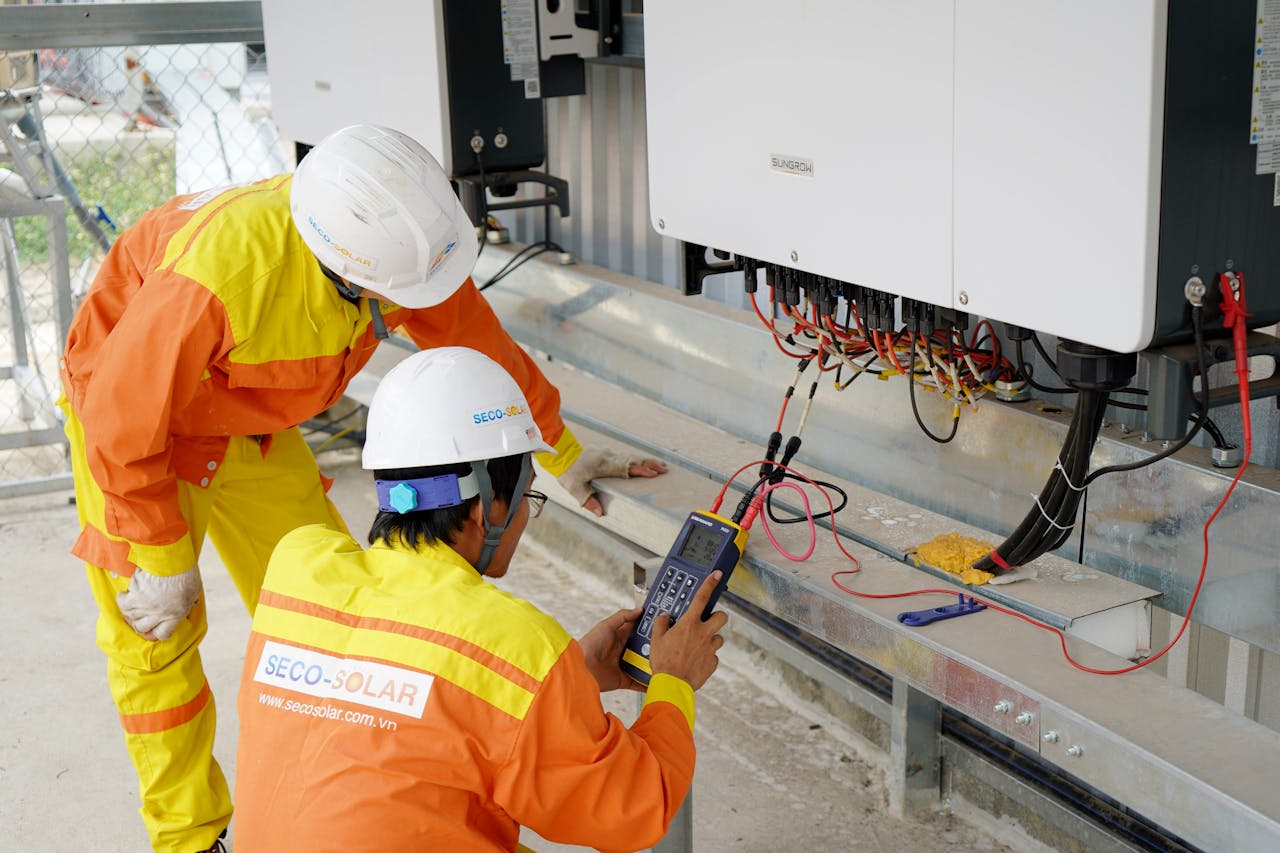Electrical Protection

| Date | Format | Duration | Fees (USD) | Register |
|---|---|---|---|---|
| 22 Dec - 26 Dec, 2025 | Live Online | 5 Days | $3785 | Register → |
| Date | Venue | Duration | Fees (USD) | Register |
|---|---|---|---|---|
| 17 Nov - 21 Nov, 2025 | London | 5 Days | $6305 | Register → |
| 08 Dec - 12 Dec, 2025 | Amsterdam | 5 Days | $6305 | Register → |
Did you know that electrical protection systems must operate within milliseconds to prevent catastrophic damage, with modern digital relays capable of detecting and isolating faults in less than 20 milliseconds (one power system cycle)?
Course Overview
The Electrical Protection course by Alpha Learning Centre is meticulously designed to equip professionals with essential skills in power system protection, fault detection, and relay coordination. This course focuses on how professionals can effectively implement protection strategies for various electrical equipment, enhance system reliability, and ensure comprehensive protection against electrical faults in modern power systems.
Why Select This Training Course?
Selecting this Electrical Protection Course offers numerous advantages for professionals involved in power system engineering and maintenance. Participants will gain advanced knowledge of protective relaying, protection coordination, and digital protection systems. The course provides hands-on experience with industry-standard relay testing equipment and real-world fault scenarios, enabling attendees to optimise their protection system strategies effectively.
For organisations, investing in this training enhances overall system reliability and ensures better fault management. Research indicates that implementing comprehensive protection frameworks results in enhanced ability to prevent widespread outages and equipment damage. According to industry experts, well-designed protection systems are essential for maintaining power system stability, with studies showing that proper relay coordination can reduce outage times by up to 70% and prevent cascading failures that could otherwise affect large areas of the power grid.
For individuals who complete this course will benefit from enhanced career prospects as they become more valuable assets in their respective fields. Studies indicate that professionals with electrical protection expertise can significantly improve their career trajectory as the field requires understanding of both theoretical principles and practical applications, while skills in fault analysis and relay setting are essential for effective power system management.
Transform your electrical protection capabilities – Register now for this critical advanced training programme!
Who Should Attend?
This Electrical Protection course is suitable for:
- Protection Engineers in power utilities
- Electrical Engineers in industrial settings
- System Operators needing protection knowledge
- Maintenance Technicians for protection systems
- Power System Consultants specializing in protection
What are the Training Goals?
The objectives of this course are to:
- Master protection strategies for power systems
- Enhance fault detection and isolation capabilities
- Implement advanced protection technologies
- Ensure compliance with protection standards
- Improve troubleshooting and maintenance practices
How will this Training Course be Presented?
The Electrical Protection Course delivers comprehensive, hands-on training through proven methodologies designed to maximise learning outcomes and practical skill development. Our expert instructors employ the following methods:
- Fault simulation and analysis labs
- Practical workshops on relay settings and testing
- Expert discussions on protection philosophy
- Case studies of protection system failures and successes
Each delivery method is carefully integrated to ensure participants gain both theoretical knowledge and practical experience. The course structure promotes active engagement and real-world application, allowing participants to develop crucial analytical and strategic skills within a supportive learning environment.
Join us to experience this dynamic and effective learning approach – Register now to secure your place!
Course Syllabus
Module 1: Fundamentals of Protective Relaying
- Principles of electrical protection
- Relay operation and characteristics
- Protection zones and selectivity
- Relay coordination principles
- Fault detection techniques
Module 2: Protection of Transmission Lines
- Overcurrent protection for lines
- Distance protection schemes
- Differential protection for transmission
- Pilot wire protection
- Line protection with communication channels
Module 3: Transformer Protection
- Differential protection for transformers
- Restricted earth fault protection
- Overfluxing and overexcitation protection
- Buchholz relay for oil-immersed transformers
- Gas and temperature monitoring
Module 4: Generator Protection
- Generator differential protection
- Loss of excitation protection
- Stator and rotor fault protection
- Overvoltage and overspeed protection
- Synchronisation and motoring protection
Module 5: Busbar Protection
- High impedance differential protection
- Low impedance busbar schemes
- Frame leakage protection
- Intertripping and backup protection for busbars
Module 6: Motor Protection
- Thermal overload protection
- Negative phase sequence protection
- Locked rotor and stall protection
- Voltage and frequency protection for motors
Module 7: Protection Coordination
- Relay setting calculations
- Coordination of overcurrent devices
- Time-current coordination curves
- Adaptive protection schemes
Module 8: Digital Protection Systems
- Microprocessor-based relays
- Communication in digital relays
- Self-monitoring and diagnostics
- Integration with SCADA and DCS
Module 9: System Grounding and Ground Fault Protection
- Types of system grounding
- Ground fault detection methods
- High impedance grounding techniques
- Arc flash mitigation through protection
Module 10: Protection Against Transients
- Lightning protection strategies
- Surge arresters and their application
- Insulation coordination for transient protection
Module 11: Protection of Renewable Energy Systems
- Protection challenges with renewables
- Anti-islanding protection
- Fault ride-through requirements
- Grid code compliance for renewable integration
Module 12: Testing and Commissioning of Protection Systems
- Relay testing procedures
- Commissioning of protective devices
- End-to-end testing of protection schemes
- Periodic maintenance of relays
Training Impact
The impact of electrical protection training is evident through various real-world case studies and data, which demonstrate the effectiveness of structured programmes in enhancing system reliability and fault management.
Research indicates that professionals with strong electrical protection skills can significantly improve power system performance. According to industry studies, modern power systems face increasing challenges including integration of renewable energy sources, which introduce new protection requirements. Advanced protection schemes that can adapt to changing system conditions are essential for maintaining reliability in these evolving power systems.
These case studies highlight the tangible benefits of implementing advanced electrical protection techniques:
- Improved system reliability through proper relay coordination
- Enhanced fault detection and isolation capabilities
- Increased equipment lifespan through effective protection
- Strengthened compliance with protection standards
By investing in this advanced training, organisations can expect to see:
- Significant improvement in power system reliability
- Improved ability to handle complex fault scenarios
- Enhanced decision-making capabilities in protection system design
- Increased competitiveness through comprehensive protection strategies
Transform your career and organisational performance – Enrol now to master Electrical Protection!








